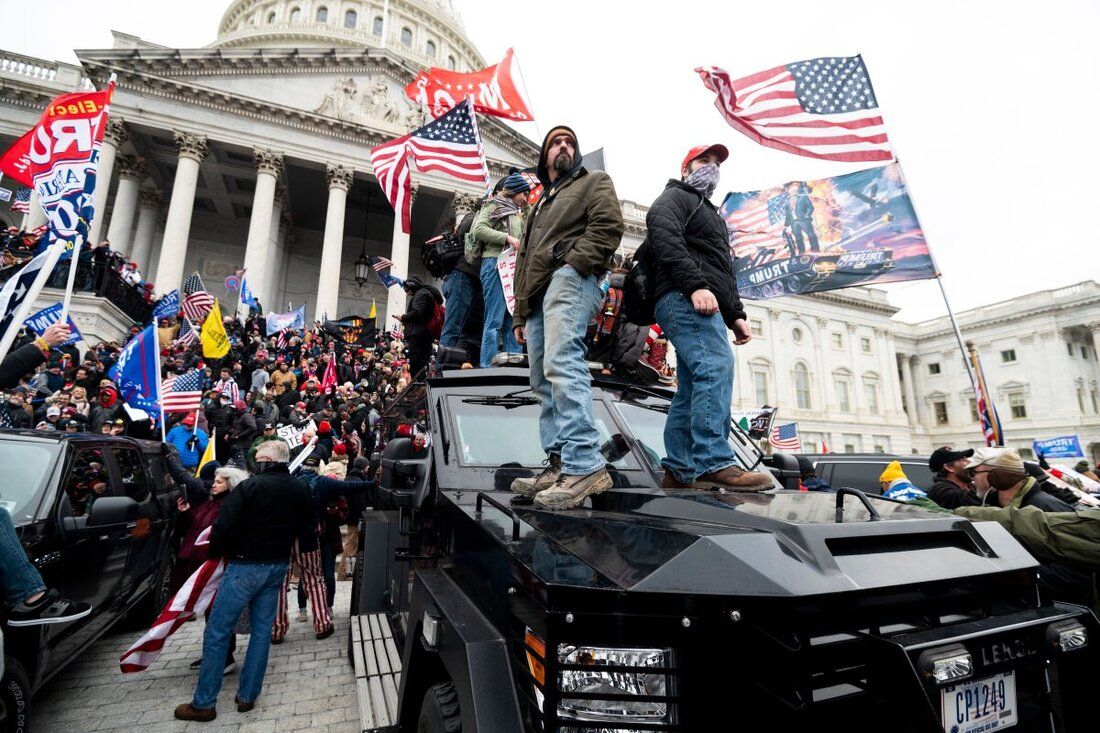Lesson 2 - What is fascism?
There was a time in the distant past when I first started teaching that students needed to make a quite an effort of imagination to understand how and why authoritarianism took hold over Western civilisation. Gradually over the last twenty-five years the warning signs have become increasingly easy to spot. Remarkably, from 2016 to 2020 my classes were able to conduct serious analyses on whether the president of the USA was a modern authoritarian or even a fascist. As Marx had famously said history has a tendency to repeat itself, first time as tragedy, second time as farce.
|
|
|
|
The incredulity of these lessons was sometimes mixed with humour (see the films above which show, over time, how the world has gradually tried to make sense of Trump.) It is inevitable that intelligent teenagers have significant difficulty in taking a man like Donald Trump seriously. But then the attempted insurrection of January 2021 happened.
|
'If this election were overturned by mere allegations from the losing side, our democracy would enter a death spiral. We’d never see the whole nation accept an election again. Every four years would be a scramble for power at any cost.' Mitch McConnell, just before the attempted Capitol insurrection, January 2021
Further reading for 2024 On the symbolism of the insurrectionists and their meaning see this useful article from National Geographic. On what might happen next to American democracy see this November 2021 article in the Guardian. |
'Trump epitomises the big man, the national strongman, who vows to defend and support the little guy and his threatened shibboleths of identity and community. In return, he demands a dictator’s unlimited power and fealty. It’s the old-new deal of the century: security, uniformity, conformity and social validation for the dominant majority at the cost of civic freedoms, legal accountability, independent media, diversity and minority rights. This is the model in place, or gaining ground, from Beijing, Moscow and Delhi to Cairo and Buenos Aires, by way of Rome, Paris and Berlin.' Fascism is everywhere on the march. And it’s Trump who sets the pace, Simon Tisdall, January 2024.
Fascism in Italy in 2024 BBC.
Fascism in Italy in 2024 BBC.
Is Fascism an ideology?
|
|
Activity
1. Briefly explain what you understand as the message of Michael Rosen's poem 'Fascism: sometimes I fear'. 2. Using my presentation, explain the main characteristics of fascism. |
Where do you stand ideologically?
|
I've been doing this quiz with my students for 20 years and the results are always predictable and almost never change.
Click here to take the test. |
Extension for Matu students and compulsory for IB students
Modern authoritarianism and the importance of World War One.
As we saw in the previous lesson, Europe's ruling elites had always feared what would happen if democracy was introduced. In Britain there was a sense of relief that first post war elections had brought the wartime government back to power. As David Reynolds says in the film below, 'the big bang of democracy had been contained. But not every country was so fortunate'.
Modern authoritarianism and the importance of World War One.
As we saw in the previous lesson, Europe's ruling elites had always feared what would happen if democracy was introduced. In Britain there was a sense of relief that first post war elections had brought the wartime government back to power. As David Reynolds says in the film below, 'the big bang of democracy had been contained. But not every country was so fortunate'.
|
|
Video - David Reynolds Long Shadow on the impact of World War One on Europe. Password = fascism
|



